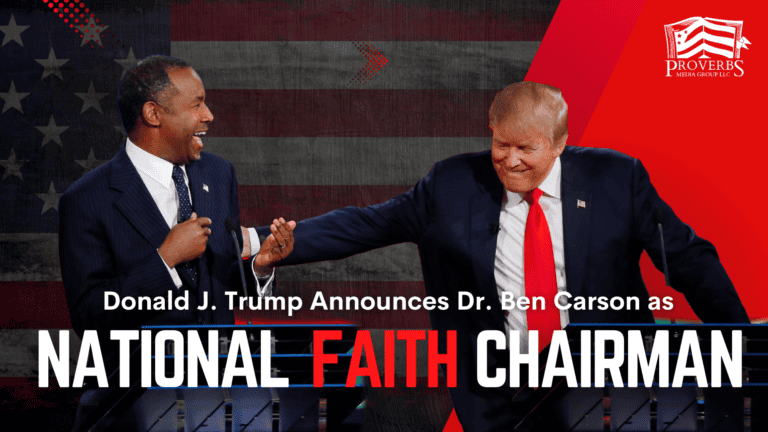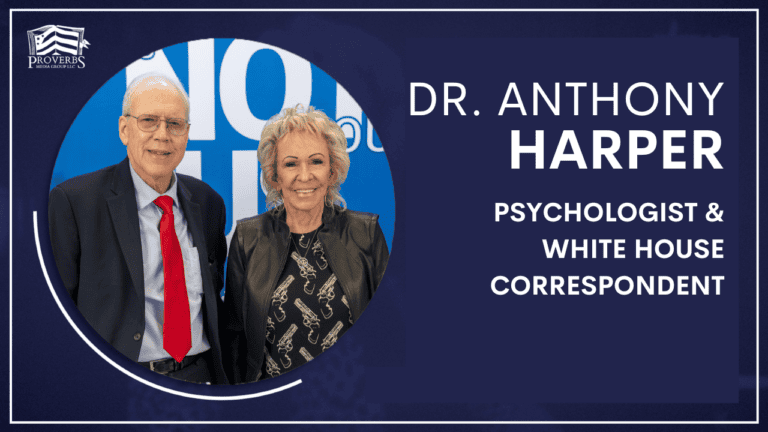Elaine Beck 0:15
Hey, everyone. I’m Elaine Beck. This is It’s Not About Us. And we are on CPAC Now, it’s so important to talk about CPAC Now, and CPAC right at this very moment, because I’m going to have, I have Michael Meshire with me again, thank you, Michael. And I have him on a previous show. And the reason I’m pointing that out is because he’s a retired Border Patrol. And he served his country for many years in that special place that was so difficult. And he’s going to tell us some very difficult things to learn about today. But CPAC, as you all just recently, when this when Sound of Freedom came out, they were there at the opening, I was privileged to be part of that. And what they did is they started a Center for Combating Trafficking. And, sadly, it is obvious that this is going on, powerfully. Many people learn the truth over Sound of Freedom. But, you know, understanding what the Border Patrol sees every day, and how big this is everywhere. And all the people that are coming into our country, and then us and how we’re affected is very important. So Michael, please, I understand that you’ve had to seen some horrific things. And you’re what was it? How many years?
Micheal Meshire 1:59
27 years.
Elaine Beck 2:00
27 years, and in you’re 27 years I’m sure that it’s gotten worse. Maybe doing a little opening of what it was like when you first got in versus now since you only just retired in March of this year?
Micheal Meshire 2:18
Sure.
Elaine Beck 2:19
And then giving us a better picture of the cartels. And that all relate back to the sex trafficking. Can you do that for me?
Micheal Meshire 2:32
Oh, absolutely. So I got in in 1996. Long time ago. And when we used to go out in the desert, we would it was very common to come on, maybe 100 150 people, all in this one big line. And with Officer command and with the presence of other officers, they’d all sit down. If they needed medical attention, we give them medical attention. If they needed food, whatever the case was, we would process them, take them back to the station. And then from there, we would expedite the removal back to Mexico or Honduras or El Salvador or other places.
Elaine Beck 3:14
So you could do that. You could, you can find them. And it’s I don’t hear you saying that they got they got into cars and tried to run I don’t hear you saying that they they stood up and fought you. They sat down on the ground. And you went through all of the things that needed to be done. And then you put them through, you know, a series of questioning and stuff to find out where they came from and stuff. And then you took care of it and they went home?
Micheal Meshire 3:48
Yes. Yes.
Elaine Beck 3:49
Okay. So, wow, what a difference. Let’s talk about what happens today.
Micheal Meshire 3:57
Well, today, you’d be surprised if you see a group of 10 illegal aliens on what we call a common operating picture, the FLIR unit because we’ve got cameras out in the field, right? And you’d see this group of 10, you’d send in maybe three or four agents now. Everyone is told by the cartel to fight to allocate to do whatever it is they can to get away. So you might have four or five agents going in on a group of 10 people and you might only get three of them. And they’re running and it’s some of them run off the cliffs. It’s horrendous. But it’s it’s the violence has gone up. 300% I myself have have had a lot of violence. It’s pretty much every day at the office. You’re going to get a fight with someone. It’s just the way it is. And so now it’s just they want their time. Talking about potentially taking tasers away from border patrol agents, because it’s- now if based on, I guess, past practices, sometimes if you take somebody it’s neuro muscular incapacitation, they’d fall and sometimes bust out teeth and, and whatnot. So the other side of litigious society has really jumped on that. So they’re trying to take more of our tools away.
Elaine Beck 5:34
Well, we talked about that earlier that you can’t take away the tools of somebody and expect him to do the job number one. Number two, when you think about everyone, this whole difference between what it was like when you first got in and what it’s like now, and when you hear that these people are being told, fight back, run, do whatever you have to do get away. Right, right. Because they don’t have a good reason to be here, do they?
Micheal Meshire 6:02
No.
Elaine Beck 6:02
No. And they know it?
Micheal Meshire 6:04
Yes.
Elaine Beck 6:05
And they know that, you know, if, especially if they’re carrying drugs, or something. But let’s get to our main subject of the day, I think we’ve given everybody a good enough picture. Let’s talk about what it’s like, for a border patrolman, when he realize when he’s in a position where you know, and see what it does to these women and young girls and even young boys when they’re sex trafficked?
Micheal Meshire 6:39
That’s that’s a rough question. Yeah, I know a lot of people firsthand. Nightmares. We see PTSD increasing, and not just Border Patrol. But the first responder community by COVID and 2020, we had our highest suicide rate, with first responders. And a lot of these agents, they have families, they have daughters, they have kids. And so they’re having to go through this, they might drive 30 minutes to an hour to work, they’re on shift for 10 hours, then another 30 minutes to an hour to get back home. And that’s if they don’t get a whole huge group of illegal immigrants, because then they’ll work 12, 13, 14 hours, and then they’ll have to come back the very next day. They’re fatigued, they’re tired. They’ve seen some horrendous stuff. Recently, the first responder community or do is doing a better job of EAP and counseling and stuff like that, because in the past, it was suck it up, buttercup. I’m glad that that that movement is changing.
Elaine Beck 7:49
Well, I think that’s something that the people need to understand that, you know, this isn’t, you know, you see somebody and you walk to them, like it used to be like you first described, and you tell them, you can’t be here, and we’re going to process you out. And dadadada da, and it’s all over. Simple. But let’s get to the sex trafficking. What is it that you see and deal with daily with the young women?
Micheal Meshire 8:22
Well, it’s it’s definitely increased, and we hear about it a lot about sex, or, sorry, rape trees. And we see these a lot in the field where these, these innocent women coming over, are raped by the smugglers, or they can’t pay their way. So they utilize their body. And the whole group of these men do some horrendous things. And then they’re told, okay, well, we’ll take you where you need to go. And the family pays whatever it is. And they never make it to their destination, because they’re pulled back and put into the sex trafficking arena.
Elaine Beck 9:04
Oh, my. So sad.
Micheal Meshire 9:07
And we’ve recovered so many of these these young boys and young girls. Yeah. And I’ve witnessed it firsthand, in the field. Smuggler raping a nine year old boy. It’s like what do you do with that? I can’t ever unsee that.
Elaine Beck 9:26
I’m sorry. No, I have to say that for you and for all of the other men that deal with this daily and, and maybe they don’t see exactly that every day. But it’s it’s going to come again. It’s going to be more than one time. It’s going to be that and dealing with knowing that the people that did come in not because you wanted to let him in but because the government says you had to hearing I mean, it’s hard enough for me to hear the stories about Young people taking drugs and dying, and young people being put into sex trafficking, and stuff. Because if you have a heart at all, if you have a mind at all, and and you can, you know, we’re not blind in our mind’s eye to seeing and understanding how horrible that is, because that’s somebody’s daughter, or son, or mother or child, how, how insensitive can you be to not feel that, and then to deal with it every day, for us not to realize that we need to pray for you all and understand that how hard it is to have to live with like you said something you can’t take back I, I teach my grandchildren, and I taught my children that, you know, everything you put in your mind will always be there. So if you want to have a good mind, that is at peace, you must read your Bible. Love one another, live by the Golden Rule, Do unto others as you would have them do unto you, not watch the horror stories, or live in the land of what I call a fantasy. Because there’s so many fantasy games and things that other children live with every day, on their phones, and on TV. And in the movies. Nothing’s real anymore. We used to have these crazy shows that we made fun of, of course, we did. We were human, you know, on TV and stuff that were about families and that and they taught a story and that, but how much better is that for a child’s mind than for them to see the horror and stuff that they do? Even hidden in cartoons even hidden in, in games, you know, to be taught, you know, by watch playing a game, that you’re shooting people.
Grand Theft Auto. Where you’re killing police and first responders in the videos. Right?
Exactly. This is not the real world as it should be not God’s real world, not the way we’re taught to live. This is something that they are impressing in children’s minds. So God help us all, is all I can say, Michael, and thank you for sharing things that are hard to share that we’re going to close for today. I want you to know that, you know, we want you all to always be reaching out, go to ElaineBeck.com. And see all the shows that I’ve done from senators and leaders of our country in all forms that I’ve talked to and had the privilege of knowing so that you can learn more about the good things that are happening. And we’re sorry, I’m sorry that sometimes I have to bring some reality to the peace. But right now with Israel at war with Hamas, and all of the bad things that are happening around the world, and us knowing how vulnerable we are, I feel that it’s only fair for you to understand where it’s coming from, and to meet some of our heroes like Michael, a true hero that goes out and went out every day to defend our border. And their hands are tied. Please go online. Go on your phone, call the hotline for Congress, and they will get you to the right people, they’ll put you through all you have to do is give them your zip code. There’s so much we can do and pray. Pray, pray, pray for the evil that’s already going on around the world, especially in Israel. And then pray for our country and pray that if we’re affected, that we know what to do. God bless you. Thank you for being a wonderful audience and you always know I’m praying for you. God bless you


